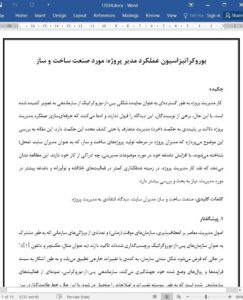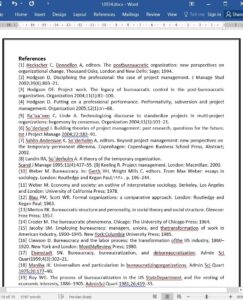Abstract
Project management work has been widely portrayed as something representing a post-bureaucratic form of organizing. However, some authors contest this view and claim that the professionalization of the project management function implies an adherence to, or even a rediscovery of, conventional management wisdom. This paper presents a study of how project managers in the production phase of construction projects, known as site managers, conceive of their work as becoming increasingly concerned with administrative matters. The study suggests that the critique of project management work, in terms of being less aimed at creative and innovative activities and more concerned with administration, needs to be further explored and debated.
1. Introduction
The contemporary management doctrine emphasizes flexibility, temporal organizations, and a number of organizational features which have been jointly labelled the post-bureaucratic organization (see, for instance, Heckscher and Donnellon [1]). While the traditional organization form is regarded as becoming slowly adapted to external changes and overtly oriented towards its own enacted routines and processes, the post-bureaucratic organization is exemplary of organized activities continuously undergoing changes and modifications. However, the line of demarcation between bureaucratic and post-bureaucratic organization forms is not as decisive and clearly marked as some authors suggest. Instead, bureaucratic forms of organizing are rediscovered and re-formulated in order to fit into new settings and respond to new conditions.









